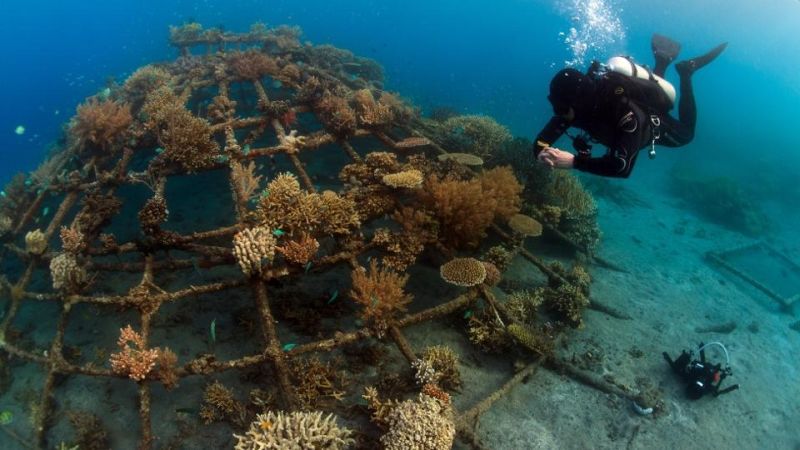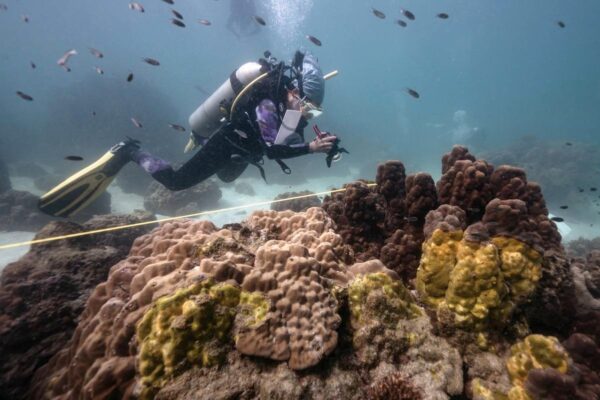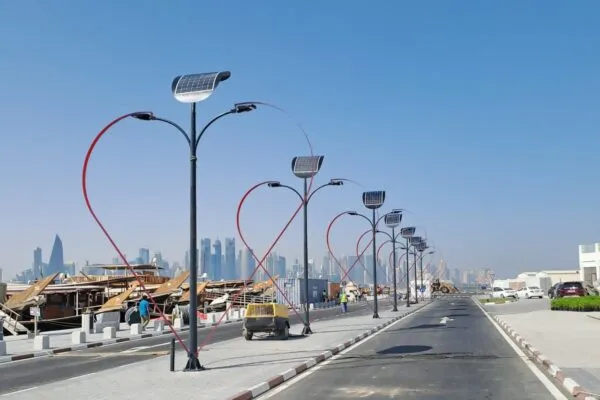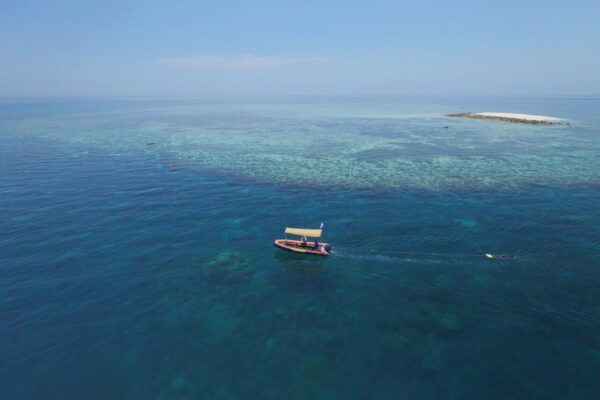Scientists Use Biorocks to Regenerate Coral Reefs in Gulf of Kutch
Global warming has endangered many wildlife species, especially the coral reef. The increasing oceanic temperature has spiked the acidic elements in the water, which have been slowly killing these beautiful ecosystems.
The Zoological Survey of India (ZSI) has installed solar-powered biorocks to regenerate coral reefs in the Gulf of Kutch. It is the country’s first such system and one more would be installed in another 15 days.

Zoological Survey of India has installed solar-powered biorocks to regenerate coral reefs in Gulf of Kutch / Image: Hindustan Times
According to the lead coral scientist of the project, Dr. Chowdula Satyanarayana, two solar panels were installed on a floating buoy to transmit energy to the biorocks. These biorocks are steel structures installed on the seabed and connected to the solar panels.
The mechanism is similar to that of electrolysis. Very low doses of electricity (less than 12 volts) are transmitted to the steel structure through a cable. When the current passes, a chemical reaction takes place in seawater and minerals like calcium carbonate accumulate on the steel structure.
An amount of approximately Rs 2 million (~$28,060) was spent on the installation of the two solar panels. Dr. Thomas Goreau, a U.S.-based coral expert also worked on the project.
Scientists have collected fragments of broken corals from the sea bed and have tied them to the Biorock structures, which would help the corals to grow and form colonies. Initially, we plan to come up with 70 such colonies on the Biorocks.
Goreau said.
The forest department of Gujrat has been working on the restoration of coral reefs, which also includes branching corals that vanished from the region 10,000 years ago.
Also Read: We’ve Almost Killed the Great Barrier Reef
The calcium carbonate which is deposited on the steel structure helps in regenerating the corals. With this first solar-powered biorock, the team of marine scientists, with the help of locals, has managed to save around 40 to 100 corals. The process will be replicated in other locations too.
Nearly 600 species of corals are found in India and are listed in Schedule 1 of the Wildlife Protection Act. The country has four major coral reef areas in Andaman and Nicobar Island, Lakshadweep, Gulf of Mannar and Gulf of Kutch. The reefs in Andaman are considered the richest and most diverse, whereas the reefs in Kutch area are the poorest.
Scientists in many countries have conserved and protected coral reefs with the help of biorocks. Pemuteran in Indonesia has the largest biorock coral regeneration project.
With the previous successes of biorock projects, the expectation is high that these solar-powered biorocks will help to protect the beautiful aquatic ecosystems.
Via: Hindustan Times


